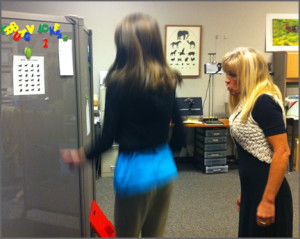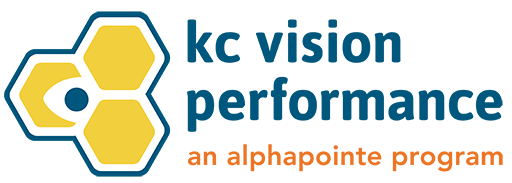 Vision therapy is often described as “physical therapy” for the eyes AND brain. Optometric vision therapy (also called behavioral or developmental optometry, functional vision, orthoptics, vision or visual training, eye training, vision therapy or VT) is the part of optometric care devoted to developing, improving and enhancing visual performance for children and adults.
Vision therapy is often described as “physical therapy” for the eyes AND brain. Optometric vision therapy (also called behavioral or developmental optometry, functional vision, orthoptics, vision or visual training, eye training, vision therapy or VT) is the part of optometric care devoted to developing, improving and enhancing visual performance for children and adults.
Download our printable Quality-of-Life Vision Questionnaire (PDF) to see if you or your student may be a candidate for vision therapy.
Eyeglasses and contact lenses compensate for vision problems, while eye surgery alters the anatomy of the eye or surrounding muscles. Vision therapy aims to train or retrain the visual system.
Every person must have over 17 visual skills such as visual scanning, focusing and eye coordination working together for reading and comprehension to occur successfully. If these vision skills have not been fully developed, or are poorly developed, learning is difficult and stressful, which may lead to:
- Visual stress and discomfort
- Fatigue
- Behavioral issues
- Altered eyesight or visual perception
- Decline in academic or work performance
- Misdiagnosed attention or learning disorders
- Poor coordination or sports performance
- Balance or issues with depth perception
Some visual conditions cannot be treated with only glasses, contact lenses, surgery or patching. Many binocular vision diagnoses and/or visual processing problems are best resolved through a program of optometric vision therapy in conjunction with your primary care optometry and/or ophthalmology needs.
It may treat many common visual problems such as:
- Lazy eye (Amblyopia)
- Crossing eye (Strabismus)
- Double vision (Diplopia)
- Convergence insufficiency / excess
- Reading and learning disabilities
- Traumatic brain injury
- Concussion-related vision changes
- Stokes
- Vision changes due to stress or illness
